Beth Kephart's Blog, page 58
January 21, 2015
Writing people: lessons from Charles D'Ambrosio
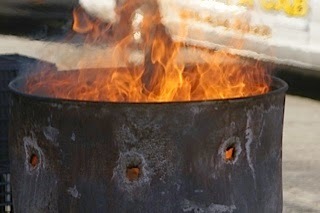 Yeah. I'm bowled over by Charles D'Ambrosio's Loitering: New and Collected Essays. One. Hundred. Percent. I mentioned this yesterday. I may well mention it again. Read the book, and learn.
Yeah. I'm bowled over by Charles D'Ambrosio's Loitering: New and Collected Essays. One. Hundred. Percent. I mentioned this yesterday. I may well mention it again. Read the book, and learn.Lesson of the day. How to write a person. I don't know that I've ever seen it done any better than this. From the essay "Winning":
Al tended the bar at night. He'd been in the merchant marine and ate with a fat clunky thumb holding down his plate, as if he were afraid the whole place might pitch and yaw and send his dinner flying. He was dwarfish and looked like an abandoned sculpture, a forgotten intention. His upper body was a a slablike mass, a plinth upon which his head rested; he had a chiseled nose and jaw, a hack-job scar of a mouth; his hands were thick and stubby, more like paws than anything prehensile. Sitting back behind the bar, smoking Pall Malls, he seemed petrified, the current shape of his body achieved by erosion, his face cut by clumsy strokes and blows. His eyes, though, were soft and blue, always wet and weepy with rheum, and when you looked at Al, you had the disorienting sense of something trapped, something fluid and human caught inside the gray stone vessel of his gargoyle body, gazing out through those eyes.
Abandoned sculpture: fantastic. A forgotten intention: genius. Something fluid caught inside a gargoyle body: are you kidding me?
I, for one, have some work to do before I can ever be fully satisfied with anything I write. The bar has been D'Ambrosio raised.




Published on January 21, 2015 04:58
January 20, 2015
my "advice to writers" and Charles D'Ambrosio
 It is perhaps fitting that today, as I set off to Penn for the inaugural spring 2015 memoir class, Jon Winokur is posting my contribution to his "Advice to Writers" series, found here.
It is perhaps fitting that today, as I set off to Penn for the inaugural spring 2015 memoir class, Jon Winokur is posting my contribution to his "Advice to Writers" series, found here.Six questions, six quick responses. Here, for example, my thoughts on writer's block:
Have you ever suffered from writer’s block?
I suffer from a lost faith in my ability to solve hard literary problems. And then I chip away at them.
But really, always, my advice comes down to reading more than you write and living more than anything else, and so may I amplify today's post by encouraging, nay, insisting, that those of you who want to write memoir or essays or memoristic essays and have not read Charles D'Ambrosio's essays get a copy of Loitering: New and Collected Essays, newly out from the fabulous Tin House Books. D'Ambrosio is a supreme master of the form—witty, willing to fail, eager to digress, self referent while avoiding self-absorption (see my thoughts on Rachel Cusk's Outline, here), devoted, in his words, to capturing "the conflicted mind in motion."
Buy this collection, watch him work.
Off to teach failure and mistakes at Penn. Things at which I'm expertly good.




Published on January 20, 2015 04:33
January 19, 2015
On reading OUTLINE by Rachel Cusk, and thoughts on a new generation of scouring fiction
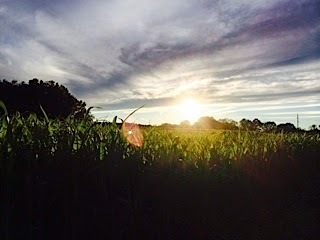 Chloe Aridjis, Jenny Offill, Samantha Harvey, Catherine Lacey, Rachel Cusk: Lately I've been reading authors like these, women unafraid of breaking form or muddying expectations, women writing sentences that scour. They are books in which the characters choose, in some way, to be alone—to isolate themselves inside their own thoughts, to sever themselves from social conventions, to tell stories that, without resort to war or torture, somehow carry knives.
Chloe Aridjis, Jenny Offill, Samantha Harvey, Catherine Lacey, Rachel Cusk: Lately I've been reading authors like these, women unafraid of breaking form or muddying expectations, women writing sentences that scour. They are books in which the characters choose, in some way, to be alone—to isolate themselves inside their own thoughts, to sever themselves from social conventions, to tell stories that, without resort to war or torture, somehow carry knives.This morning I finished reading Outline, Rachel Cusk's story of—well—what is it, exactly? It is the story of a writer who has gone to Greece for a week to teach; yes, it is that, at one level. But mostly it is about a woman who moves through the world under the assault of other people's stories. People who find themselves, in her presence, talking through the cyclone of their own lives, presenting themselves as they wish to be presented, asserting their right (right?) to be heard, smudging and aggrandizing, begging to be understood, until, ultimately, their stories devolve into self-circling harangues. The people our narrator meets, the people who natter on, hardly need to be encouraged. Given room to talk, they do, exhibiting, ultimately, that something selfish, stingy, mean of propulsive monologue. We have all been on the other side of such a thing. We understand. There is almost a comedy to it.
But Cusk is after far more than a set piece, a commentary on rampant self-absorption. Cusk ratchets the ambush of monologue to high tension in Outline. She makes, of these disconnected interludes, a story with an arc. She uses her scheme to explore essential questions about the lies we tell ourselves, the responsibilities we negate, the desire we have to blame other people for the unhappiness we feel or the success we have not had or the mess we have made of marriages or parenting. Her narrator is a woman who "did not, any longer, want to persuade anyone of anything." She is a woman rarely asked about herself, but when she does comment on the stories she is told, she brings an outsiderly wisdom, a pausing perhaps. We know the outlines of who she is (a writer, a divorcee), in other words, but far more important is how we come to know what she thinks.
Here, for example, she is responding to an insufferable woman's complaints about marriage:
I replied that I wasn't sure it was possible, in marriage, to know what you actually were, or indeed to separate what you were from what you had become through the other person. I thought the whole idea of a 'real' self might be illusory: you might feel, in other words, as though there were some separate, autonomous self within you, but perhaps that self didn't actually exist. My mother once admitted, I said, that she used to be desperate for us to leave the house for school, but that once we'd gone she had no idea what to do with herself and wished that we would come back.
Here the narrator muses on desire:
I said that, on the contrary, I had come to believe more and more in the virtues of passivity, and of living a life as unmarked by self-will as possible. One could make almost anything happen, if one tried hard enough, but the trying—it seemed to me—was almost always a sign that one was crossing the currents, was forcing events in a direction they did not naturally want to go, and though you might argue that nothing could ever be accomplished without going against nature to some extent, the artificiality of that vision and its consequences had become—to put it bluntly—anathema to me. There was a great difference, I said, between the things I wanted and the things I could apparently have, and until I had finally and forever made my peace with that, I had decided to want nothing at all.A rosy world view this is not. Easy entertainment—it's not that, either. But it is fierce and different and part of a new world order in fiction written by women. A movement to which I think we must pay quite close attention.




Published on January 19, 2015 05:46
January 18, 2015
The Mud Angels of One Thing Stolen
A long time ago, when I began to write the book that became One Thing Stolen, I thought of it as a book called Mud Angels. Perhaps because it is the story of a rescue—of more than one rescue. Perhaps because parts of the tale take place against the backdrop of the November 1966 flood that destroyed so much of Florence.
Today, when there is so much rain where I live, when my own car nearly slid into a stone wall earlier this morning, I share a few minutes of the Florence flood and of those mud angels who inspired my work on One Thing Stolen. This is an unusual, hybrid video that tells the important story.




Published on January 18, 2015 12:47
January 17, 2015
THE GATHERER/Poems by Judith Bowles (and a story)
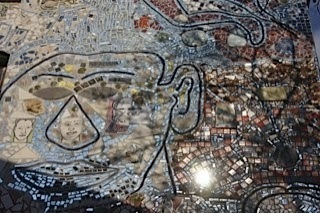 I can't remember the year. I remember the sweep of stairs and the white-light room at the Philadelphia Ethical Society, just off Rittenhouse Square. I remember the people—Mike Dunn, of KYW News, Tanya Barrientos, an Inquirer writer who later forged an amazing communications career, a blonde who raked her stories with lists, James Rahn, the workshop leader, others. And there in that class of journeying writers was Judith Bowles, a woman who had lived an extraordinary life, raised famous children, and had remarkable powers with words. She had lived in Sri Lanka, Tunisia, Wyoming, Manhattan. She remembered her mother. She wrote stories whose quietude I can still hear in my head, though I don't remember the plotting, a typical disorder, since plotting has rarely engaged my heart or my ear.
I can't remember the year. I remember the sweep of stairs and the white-light room at the Philadelphia Ethical Society, just off Rittenhouse Square. I remember the people—Mike Dunn, of KYW News, Tanya Barrientos, an Inquirer writer who later forged an amazing communications career, a blonde who raked her stories with lists, James Rahn, the workshop leader, others. And there in that class of journeying writers was Judith Bowles, a woman who had lived an extraordinary life, raised famous children, and had remarkable powers with words. She had lived in Sri Lanka, Tunisia, Wyoming, Manhattan. She remembered her mother. She wrote stories whose quietude I can still hear in my head, though I don't remember the plotting, a typical disorder, since plotting has rarely engaged my heart or my ear.But Judith Bowles engaged me. Even as the class dissipated and we writers went our own ways and Judith moved with her husband to somewhere near DC. Even then, we continued our friendship. Old-fashioned letters. Christmas cards. And then, this year, Judith's card to me announced the publication of her first book of poems. Her moment now that her girls, and their children, are grown.
This is The Gatherer, published by Turning Point Books. Which I, grateful, have read this afternoon.
These are poems about earth that is "foggy soft" after a "snapped back" rain, about mason jars "like picture books/wild with color," about Edison's death chair, and about an Uncle Charlie who sizes the young girl up:
... After my horseshow he wanted
to know why I slumped
the minute the judges appeared
and at swim meets why I dove
deep off the side of the pool.
He said that I swallowed up
luck. He'd learned from watching
I didn't want to win. No other grownup
talked to me like that.
(Fisherman)
These are poems about a homemade life and about earrings (and a poem) "restored from shards," and about a "wild blue place"(this is my favorite poem) in which Judith practices the absence of her mother. Look:
... The sky there was wide, sharp,
attentive and as if from that wild
and very blue place
came a soft little gesture
that suited my hand.
It's a rite I still practice dozens
of times every day where my thumb
rubs my forefinger in smooth tiny
circles that say we're each here.
(Wild Blue Place)
Reading The Gatherer is like having Judith back in the room with me, her steady grip on elusive things. Reading The Gatherer is a pleasure I urge on every one of you.
Congratulations, Judith Bowles. It was worth the wait.




Published on January 17, 2015 14:38
Philly is Number 3 on the New York Times "52 Places to Go in 2015" list, and I'm feeling pride
 Not as if I haven't been saying that myself (well, sort of), right here, and in the Inquirer, and in my books. But huzzah. This is the New York Times speaking, not just some homegrown booster.
Not as if I haven't been saying that myself (well, sort of), right here, and in the Inquirer, and in my books. But huzzah. This is the New York Times speaking, not just some homegrown booster.I am taking particular pleasure in this because I have had the privilege of working with some of the people who are making the radical difference. Let's put Brandywine Realty Trust high on that radical difference list, and Brandywine CEO Jerry Sweeney himself, who has quietly and collaboratively helped engineer a renaissance along the Schuylkill River Banks (through the Schuylkill River Development Corporation, which he chairs), in University City, and in the downtown nexus. Let's talk about outdoor artists like Jane Golden and Isaiah Zagar. Let's look at my alma mater and employer, the University of Pennsylvania, which keeps the greening coming.
In naming Philadelphia right after Milan and Cuba on its list, the New York Times, in its January 9, 2015 story, said this:
The making of an urban outdoor oasis.
A series of projects has transformed Philadelphia into a hive of outdoor urban activity. Dilworth Park, formerly a hideous slab of concrete adjoining City Hall, reopened this past autumn as a green, pedestrian-friendly public space with a winter ice-skating rink (and a cafe by the indefatigable chef Jose Garces). Public art installations, mini "parklets" and open-air beer gardens have become common sights. The Delaware River waterfront was reworked for summer 2014 with the Spruce Street Harbor Park (complete with hammocks, lanterns and floating bar) becoming a new fixture, following the renovation of the Race Street Pier, completed in 2011, and offers free yoga classes on a bi-level strip of high-design decking and grass. The city’s other river, the Schuylkill, has its own new boardwalk. To top it off, this spring, Philadelphia will get its first bike share program, making this mostly flat city even more friendly for those on two wheels. Nell McShane Wulfhart




Published on January 17, 2015 07:55
January 16, 2015
I had been missing my city.
 Today I returned.
Today I returned.I took a very long walk toward the southern edge of things, then began to weave (east west east west) back north. There was enough sun. There was ample chill. There were long-timers who stopped to tell me things.
I had three cameras, a pair of sneakers, an old coat. The best day of January, by far.




Published on January 16, 2015 13:32
January 15, 2015
One Thing Stolen: what I'm learning as Glenda Cowen-Funk reads the book
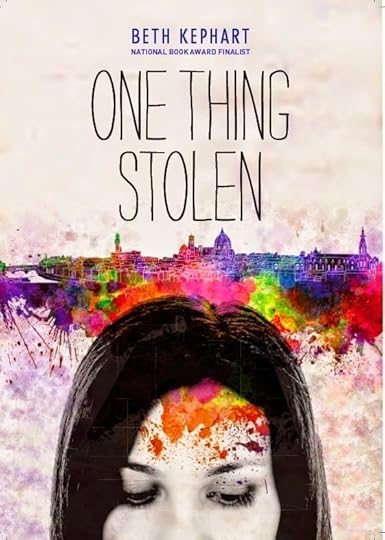 There must have been some magic involved.
There must have been some magic involved.There (on a dark street at the National Harbor on a cold night) I stood with Ginee Seo and Sally Kim of Chronicle Books; we'd just emerged from a wonderful meal. There, coming toward us, was Paul W. Hankins, whose Twitter handle reveals him to be a "reader, writer, wonder-er, and teacher of English/AP English Language/Composition at Silver Creek High School," though everyone already knows him for his passionate advocacy of youth, words, and innovative teaching. A conversation that began (in person) that night continued on Twitter and Facebook and soon the conversation was embracing one Glenda Cowen-Funk, a supreme teaching goddess and master/mistress, who began to tell me stories about the way she teaches her high school students in Idaho.
You want to know how to teach The Great Gatsby? Ask Glenda. You want to see Beowulf come to life? Rush travel your way to her classroom. You want to know how lucky I am? Glenda has been reading One Thing Stolen. She's been reading, she's been musing, and I've been learning from her.
Yesterday I asked if some of Glenda's beautiful musings about the book might be shared more broadly. Generously, Glenda said yes. And so, with deepest appreciation for teachers who bring such enormous creativity to the classroom and such kindness to writers, I share Glenda's thought-provoking words.
One Thing Stolen is a nest of words, pieced together to build a shelter. Like Laurie Halse Anderson does in SPEAK, Kephart has created a character who cannot speak, only she does, punctuating streams of consciousness."
— Glenda Cowen-Funk, NEA Master Teacher Project, NBCT, Teacher at S. D. # 25, Highland High School, Pocatello, Idaho




Published on January 15, 2015 04:25
January 14, 2015
how do we make our hard stories matter to others?
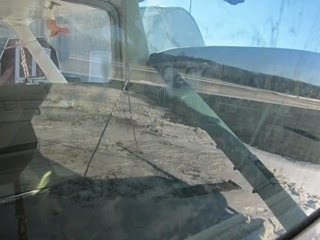 As I prepare to teach memoir again at Penn, I think about the hardest lesson of all—how we make the thing that has happened to us matter to others. The details alone—their accumulation—are but a record, a report. They will not tremble the hearts of perfect and imperfect strangers until they, as Saint-Exupery says here, are reconceived as transcendent matter.
As I prepare to teach memoir again at Penn, I think about the hardest lesson of all—how we make the thing that has happened to us matter to others. The details alone—their accumulation—are but a record, a report. They will not tremble the hearts of perfect and imperfect strangers until they, as Saint-Exupery says here, are reconceived as transcendent matter.Every week men sit comfortably at the cinema and look on at the bombardment of some Shanghai or other, some Guernica, and marvel without a trace of horror at the long fringes of ash and soot that twist their slow way into the sky from those man-made volcanoes. Yet we all know that together with the grain in the granaries, with the heritage of generations of men, with the treasures of families, it is the burning flesh of children and their elders that, dissipated in smoke, is slowly fertilizing those black cumuli.
The physical drama itself cannot touch us until some one points out its spiritual sense.
Antoine De Saint-Exupery, Wind, Sand and Stars




Published on January 14, 2015 07:24
January 13, 2015
crossing from relentlessly clever toward zealously humane (reflections on Rivka Galchen)
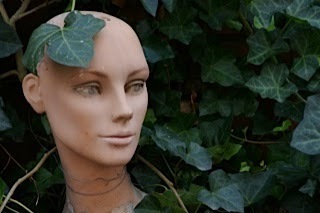 This past weekend I read the first 100 and last 100 pages of a much-acclaimed YA novel that felt, as I later wrote to a dear friend, relentlessly clever. The boom bang gee whiz zip of it all. The personality identifiers that soon became that scratch in the vinyl of the song. The politically correct issues wedged into something nearly other worldly. This novel has one extremely fine sentence and immaculate image after the other; I understand where the applause is coming from. And yet I felt wearied as I tried to ride its waves. I wanted it to settle down, somehow. Ripen quietly for a moment or a scene. Cross the border from the unexpected image toward the unexpected truth.
This past weekend I read the first 100 and last 100 pages of a much-acclaimed YA novel that felt, as I later wrote to a dear friend, relentlessly clever. The boom bang gee whiz zip of it all. The personality identifiers that soon became that scratch in the vinyl of the song. The politically correct issues wedged into something nearly other worldly. This novel has one extremely fine sentence and immaculate image after the other; I understand where the applause is coming from. And yet I felt wearied as I tried to ride its waves. I wanted it to settle down, somehow. Ripen quietly for a moment or a scene. Cross the border from the unexpected image toward the unexpected truth. Early this morning, on the other hand, I finished reading American Innovations, a collection of short stories by Rivka Galchen, a writer well known and widely regarded for her astonishing forays into the absurd. Galchen frames her stories within the nearly recognizable. She tilts them off the screen. She bends and folds and breaks her landscapes and people until you're pretty sure, as her wide-eyed reader, that you've arrived at a surrealist museum.
Still, Galchen's tales alight from all-too-human insecurities, aloned-ness, confusions over purpose. Sure, there are streaming oddities and uncomfortable hilarities and the smack of white space at the end of it all—but Galchen is priming us for something bigger than the circus. She is making room, within the flurry, for the ascension of uncommon truth.
I'm quoting from the story "Once an Empire." Our lives-alone narrator has just returned from a movie. It's after midnight. She looks up toward her apartment where, strangely, but soon it hardly seems strange at all, her "stuff" is leaving her. The ironing board has walked off gently:
Next, with surprising nimbleness, my brown velveteen recliner climbed down, then passed by me in a stump-legged gallop. My wood-armed Dutch sofa shuffled graceful as a geisha. My desk chair seemed to think it had wheels, which it doesn't. A green-globed desk lamp went by. An ordinary plastic dustpan. A heavy skillet, scorched. My things. They were all heading east. With an enviable sense of purpose. An old set of Russian nesting dolls from my father, the ladder I used to reach my storage loft, a forgotten feather duster (blue), a pine cabinet with round hinges, two high kitchen stools I had painted, one of which had a yellow splatter I liked to run my fingers across.... "Stuff" is such a childish word. Sheets passed as if floral ghosts. My books rustled by like a military of ducks. My mother had never liked my books. She'd said they kept me from real life, by which I think she meant men, or money, or both. Always accusing things of precisely the crimes they haven't committed.
In other hands, this cleverness of image might have been enough — the Disneyesque escape of things from an apartment. But in Galchen's hands there is something deeper here — that "With an enviable purpose." That pause to comment on the word "Stuff." That interstitial bit about the mother, the clue about real life, that powerful "Always accusing things of precisely the crimes they haven't committed." Here, in the landscape of the strange, the strange is still background, while the human heart is foreground.
This (in addition to her wild imagination) is Galchen's special talent.




Published on January 13, 2015 07:37



